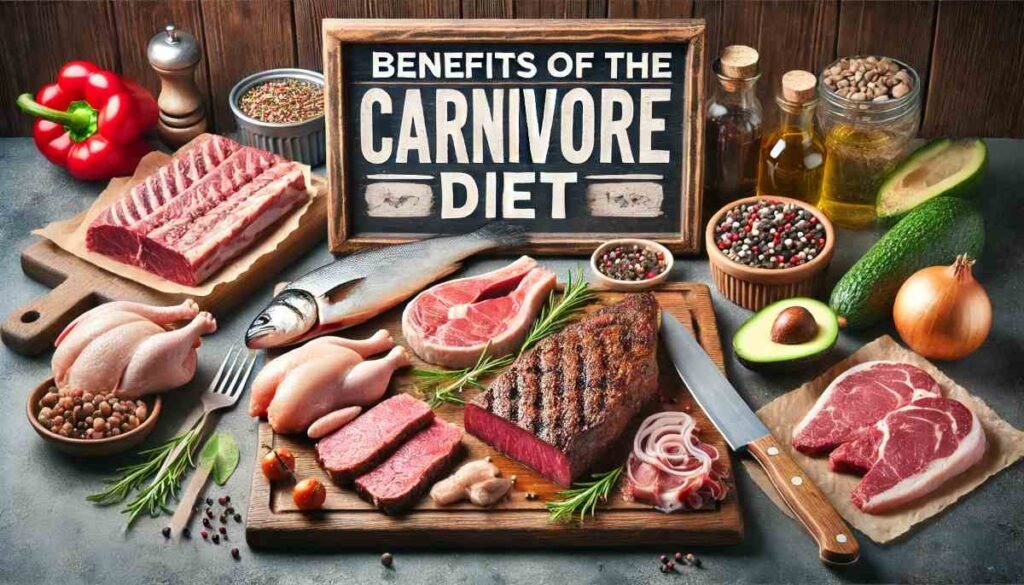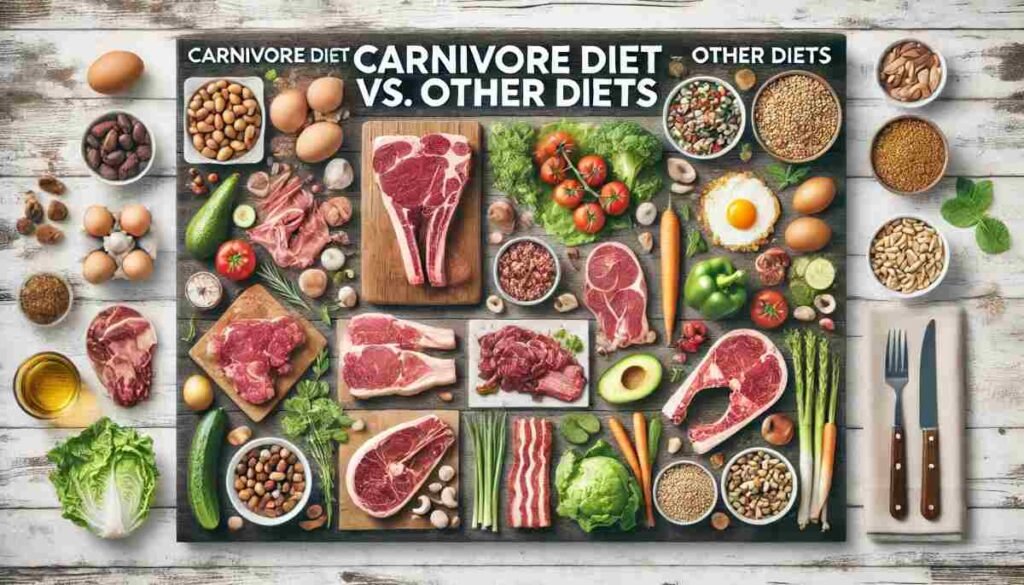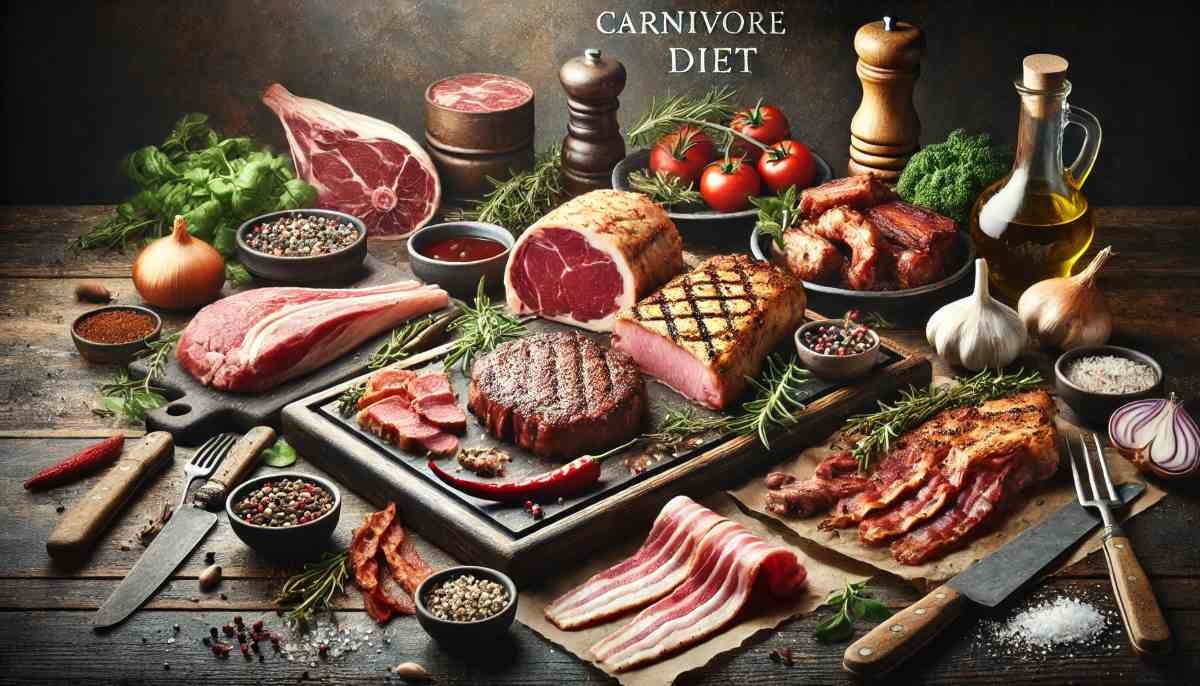What is the Carnivore Diet?
The carnivore diet is a highly restrictive dietary regimen that focuses exclusively on consuming animal products. Unlike other low-carb diets such as keto or paleo, the carnivore eliminates all plant-based foods, including fruits, vegetables, grains, legumes, nuts, and seeds. Proponents of the diet argue that it provides the most bioavailable nutrients and eliminates many common dietary triggers of inflammation and chronic disease. The diet primarily consists of meat, fish, eggs, and in some cases, dairy products.
History and Origins
The carnivore diet traces its roots to the dietary practices of ancient humans, who were believed to have relied heavily on animal products for sustenance. The diet is often linked to the evolutionary theory that humans are naturally designed to thrive on a meat-based diet. In recent years, the carnivore diet has gained popularity through the advocacy of individuals such as Dr. Shawn Baker, a proponent of the diet who claims it has helped him achieve peak health and performance.
The diet also aligns with the ancestral eating patterns of certain indigenous populations, such as the Inuit, who traditionally consumed a diet high in animal fat and protein with minimal plant foods. These historical and cultural examples have been cited as evidence supporting the carnivore diet’s potential benefits.
Popularity and Current Trends
In recent years, the carnivore diet has surged in popularity, particularly among those looking for a simple and effective way to lose weight, manage chronic health conditions, or improve mental clarity. The diet has been championed by various health influencers and has gained traction in online communities where followers share their success stories and meal plans. While the diet remains controversial, its growing popularity suggests a shift in the way some people view nutrition and health.
Core Principles of the Carnivore Diet
Animal-Based Nutrition
At the heart of the carnivore is a focus on animal-based nutrition. This includes consuming all parts of the animal, such as muscle meat, organs, and connective tissues. The diet emphasizes the intake of nutrient-dense foods like red meat, which is rich in essential vitamins and minerals, including iron, zinc, and B vitamins. Some followers also include fish and seafood for their omega-3 fatty acids and other health benefits.
Exclusion of Plant-Based Foods
One of the most defining characteristics of the carnivore is the complete exclusion of plant-based foods. This means no fruits, vegetables, grains, legumes, nuts, or seeds. The rationale behind this exclusion is that plant-based foods contain anti-nutrients, such as lectins and oxalates, which some proponents believe can cause inflammation and other health issues. By eliminating these foods, the carnivore aims to reduce potential irritants and allergens, leading to better health outcomes.
Focus on Whole Animal Products
The carnivore diet encourages the consumption of whole animal products, rather than processed meats or animal-based products. This includes not just muscle meat but also organs like liver and kidney, which are highly nutrient-dense. The diet also advocates for the consumption of bone broth and other animal-derived foods that provide essential nutrients such as collagen and glycine, which are important for joint health and overall well-being.
Benefits of the Carnivore Diet

Weight Loss and Metabolic Health
One of the essential reasons individuals go to the meat eater diet is for weight reduction. The diet’s high protein content promotes satiety, reducing overall calorie intake and leading to weight loss. Additionally, the elimination of carbohydrates helps stabilize blood sugar levels and improves insulin sensitivity, which can be beneficial for those with metabolic conditions like type 2 diabetes.
Mental Clarity and Cognitive Function
Many followers of the carnivore report improvements in mental clarity and cognitive function. The diet’s focus on high-quality fats and proteins, which are essential for brain health, may contribute to these benefits. Additionally, the reduction in sugar and processed foods, often associated with cognitive decline, may further enhance mental performance.
Reduction in Inflammation and Autoimmune Symptoms
The carnivore diet is often touted for its anti-inflammatory effects. By eliminating common dietary triggers of inflammation, such as gluten, dairy, and processed foods, the diet may help reduce symptoms of autoimmune diseases and other chronic inflammatory conditions. Many people report significant improvements in conditions like arthritis, eczema, and irritable bowel syndrome after adopting the carnivore diet.
Potential Risks and Drawbacks
Nutrient Deficiencies to Watch For
While the carnivore diet provides a wealth of certain nutrients, it may also lead to deficiencies in others, particularly those found in plant-based foods. For example, the diet may lack sufficient amounts of vitamin C, fiber, and certain phytonutrients. Those on the carnivore diet need to monitor their nutrient intake and consider supplements if necessary.
Digestive Health and Fiber Concerns
A significant concern with the carnivore diet is the lack of dietary fiber, which is essential for maintaining healthy digestion. Fiber helps promote regular bowel movements and supports gut health by feeding beneficial bacteria in the digestive tract. Without fiber, some individuals may experience constipation or other digestive issues. However, proponents of the carnivore argue that the diet’s simplicity and high fat content can help maintain gut health without the need for fiber.
Long-term Sustainability and Adherence
The carnivore diet’s restrictive nature can make it difficult for some people to adhere to in the long term. The social and psychological aspects of eating, such as dining out and enjoying a variety of foods, can be challenging to navigate on such a limited diet. Additionally, the long-term health effects of the carnivore diet are not yet fully understood, and more research is needed to determine its safety and efficacy over extended periods.
Carnivore Diet vs. Other Diets

Comparison with Keto and Paleo Diets
The carnivore diet shares similarities with both the keto and paleo diets, as all three emphasize low carbohydrate intake and focus on whole foods. However, the carnivore is more extreme in its exclusion of plant-based foods. While keto allows for low-carb vegetables and some fruits, and paleo permits a variety of plant-based foods, the carnivore diet relies solely on animal products. This makes the carnivore diet more restrictive but also simpler in its execution.
Carnivore Diet vs. Plant-Based Diets
The carnivore diet stands in stark contrast to plant-based diets, which emphasize the consumption of fruits, vegetables, grains, and legumes. While plant-based diets are praised for their high fiber content and rich array of vitamins and antioxidants, the carnivore diet argues that these nutrients can be adequately obtained from animal products. The choice between these diets often comes down to individual preferences, health goals, and ethical considerations.
Which Diet is Right for You?
Choosing the right diet depends on your individual health needs, goals, and lifestyle. The carnivore diet may be beneficial for those seeking to eliminate food sensitivities, reduce inflammation, or achieve weight loss. In any case, it may not be reasonable for everybody, especially those with specific ailments or dietary inclinations. It’s important to consider the pros and cons of each diet and consult with a healthcare provider to determine the best approach for your needs.
Carnivore Diet Food List
On the carnivore diet, your meals will primarily consist of:
- Meat: All types of beef, pork, lamb, poultry, and game meats
- Fish: A wide variety of fish, including salmon, tuna, mackerel, and sardines
- Eggs: Any style of eggs, from scrambled to boiled or poached
- Animal Products: Options like yogurt, cheese, and bone broth
- Seasonings: Simple seasonings such as salt and pepper
This list keeps your diet focused on nutrient-dense, animal-based foods while allowing for basic seasonings to enhance flavor.

